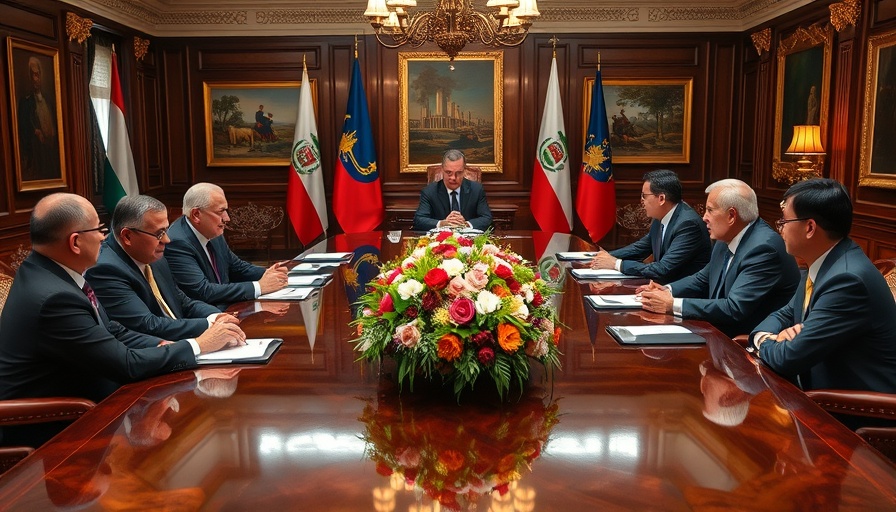
Israel’s Strategic Moves at the Africa Summit
As US President Donald Trump convenes the African leaders for a landmark summit in Washington, Israeli Prime Minister Benjamin Netanyahu is leveraging the event to advance Israel's diplomatic agenda on the continent. This gathering offers a significant platform for Netanyahu, who aims to cultivate stronger ties with African nations, a move that reflects broader geopolitical trends.
The Quest for Normalization: A Historical Perspective
Israel's initiative to normalize relations with African states stems from decades of complex historical interactions, dating back to the founding of the state in 1948. Throughout the years, Israel's involvement in Africa has oscillated between diplomatic engagement and periods of isolation, influenced by changing political climates and alliances. The current focus on Africa aligns with a strategy to secure a foothold on a continent rich with resources and growing economies, presenting opportunities in economic growth, renewable energy, and trade.
Implications for African Governance and Democracy
The dynamics unfolding at the summit raise significant questions about the impact of external alliances on governance and democracy in African nations. Israel's interest in nations transitioning towards stability opens up both opportunities for development and risks of external influence skewing local governance. As African leaders navigate their relationships within the context of Israel's ambitions, they must also contend with the legacy of colonialism, corruption, and the quest for true democratic governance.
The Role of the African Diaspora
A critical factor in strengthening ties between Israel and Africa is the African diaspora, which plays a vital role in cultural exchange and mutual understanding. Many professionals in Europe and the Americas advocate for investment and bilateral partnerships that can foster growth across the continent. By engaging diaspora communities, Israel can create a more profound connection with African nations, tapping into networks that promote entrepreneurship, innovation, and sustainable development.
Israel and the Shift Towards Renewable Energy
With the global community increasingly focused on combating climate change, Israel’s expertise in renewable energy technology can be of great benefit to African nations facing issues like desertification and water scarcity. Collaborative projects could stimulate local economies while promoting sustainable practices. This partnership holds potential not just for environmental benefit but also for human rights and economic empowerment as nations strive for energy independence and resilience against climate challenges.
Future Forecasts: The Path Ahead
As the summit progresses, it will be crucial to observe how these diplomatic engagements impact African countries' policies regarding development, trade, and human rights. The potential for conflict resolution and peacekeeping initiatives also looms large, as regional tensions continue to challenge stability. The conversations initiated here could reshape the socio-economic landscape of a continent eager for progress and peace.
Final Thoughts: Embracing Change for a Better Future
Netanyahu’s diplomacy at this summit symbolizes a broader shift in international relations, suggesting that African nations are gaining more leverage on the global stage. The integration of Israel's technology and resources might offer pathways for not only economic enhancement but also cultural exchanges that celebrate Africa's diverse heritage. The true measure will be how these initiatives translate into tangible benefits for the people on the ground.
In this ever-evolving landscape, the importance of thoughtful engagement cannot be overstated. As Africa charts its course towards a prosperous future, ongoing dialogues like those at Trump's summit will play an essential role in shaping how nations collaborate, grow, and thrive.
 Add Row
Add Row  Add
Add 




Write A Comment